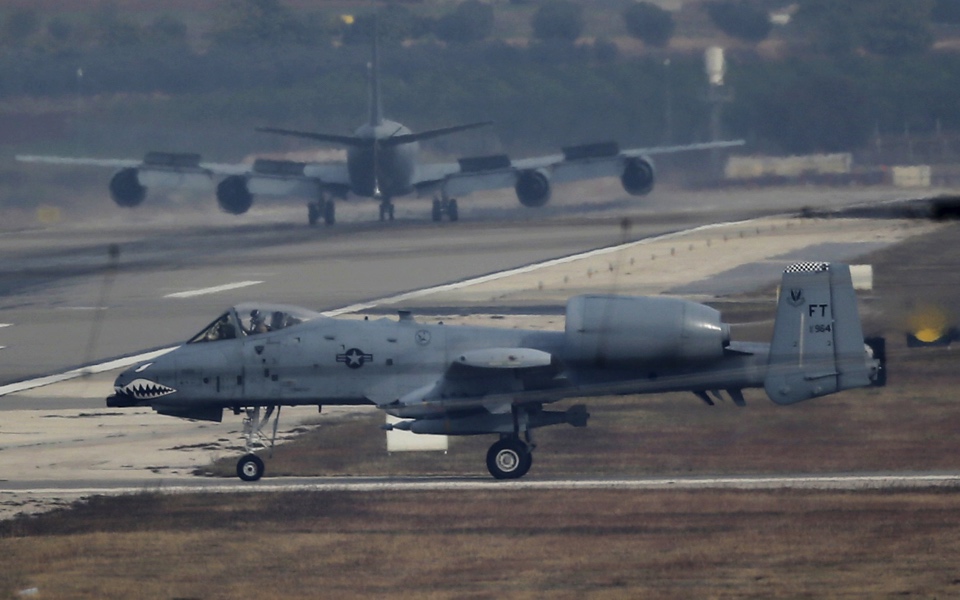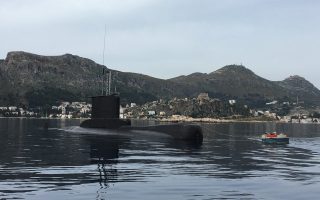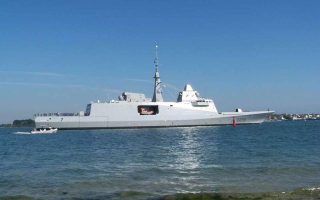Time to re-evaluate America’s military dependence on Turkey

It is time to re-evaluate America’s military dependence on Turkey. Begin by putting Ankara on notice that the United States will move its military assets from Turkey’s Incirlik Air Base.
Why? After all, Turkey is a NATO ally and President Donald Trump has repeatedly and publicly praised its president, Recep Tayyip Erdogan, including at the London NATO Summit. But last month, Turkey’s Foreign Minister Mevlut Cavusoglu declared that Ankara was considering a new military operation in northeast Syria against the Syrian Kurds.
This came days after President Trump received assurances from his Turkish counterpart at the White House that Ankara “will continue to uphold [its commitments]” vis-a-vis the brokered ceasefire. So Cavusoglu’s latest announcement is yet the latest example of Turkish duplicity, which adds further weight to the argument that the US should no longer trust Ankara as an ally.
Over the last several years, it has become increasingly apparent that Turkey has operated against US interests in the Middle East and Eastern Mediterranean. It hindered American military operations against ISIS in Syria, set back progress in the long-running Cypriot peace negotiations in 2014 and 2017, and – despite repeated warnings – purchased and received Russia’s S-400 air defense system, which represents a grave threat to NATO and US security. In response to the latter, Washington suspended Turkey from the F-35 partner program.
When asked about growing concerns about the safety of these nuclear weapons in light of deteriorating US-Turkey ties, former US Air Force secretary Deborah Lee James noted that – hypothetically – if such weapons did require relocation, removing them from Incirlik would be a “complicated operation [that] would require negotiations with the [new host] nation.”
Nevertheless, the US should prioritize moving these weapons to a more stable and secure European facility, such as Aviano Air Base in Italy. There is simply no longer a strategic necessity for maintaining a nuclear arsenal in Turkey as the United States has other nuclear forces available for deterring Russia.
Second, Washington should relocate the 39th Air Wing and its various support functions; Cyprus and Greece are excellent alternatives. For the former, its Akrotiri Air Base is already home to the United Kingdom’s Royal Air Force and it has runways and facilities akin to Incirlik; moreover, it is still near the Middle Eastern theater but has the added advantage of being located on European soil.
Choosing Cyprus would send Turkey a clear message that the US is no longer prepared to tolerate Turkey’s illegal oil exploration and naval harassment within the Cypriot exclusive economic zone.
As for Greece, I have explained previously that Athens is positioning itself as NATO’s “new southeastern bulwark [by] enthusiastically hosting alliance exercises and making its naval base on Crete available to the United States.”
This has not gone unnoticed in Washington, and in early October, the two nations signed a new Mutual Defense Cooperation Agreement, which outlines the fundamental aspects of the US-Greek security relationship. Media reports at the time indicated that the United States was planning on expanding the Souda Bay Naval Base that’s used by the US Navy’s Sixth Fleet as well as creating additional basing facilities for helicopters and drones.
That news follows local Greek press coverage in March 2018 that former US assistant secretary of state for European and Eurasian affairs Wes Mitchell had discussed the possibility of relocating a “significant portion” of US military assets from Incirlik to Greece during a visit to Athens.
Notwithstanding any new plans to expand basing options in Greece, it is vital to note that there are already facilities at hand for quickly transferring US aerial assets away from Turkey.
First, there is Greece’s Larissa Air Force Base, which is where US MQ-9 Reaper UAVs temporarily operated from during 2018-19. Second, there are the two nearby smaller bases of Stefanovikeio and Volos; the former houses various US helicopters that are used for training missions, while the latter, as of February, hosts 350 US troops. Finally, the United States is planning to “establish a new naval and air force base in… Alexandroupoli to supply NATO allies Bulgaria and Romania.”
For those concerned that moving assets away from Incirlik might fracture relations between Ankara and Washington, they should recall that the United States already relocated assets elsewhere and began reducing the number of military family members living at the base early last year. Furthermore, Germany – a major US NATO ally – pulled its forces from Incirlik and relocated them to Jordan because the Turks were similarly imposing flying restrictions on them.
Ultimately, leaving Incirlik minimizes the possibility that Turkey’s worsening strain of anti-Americanism will endanger critical US missions in the region. It will further make clear to Ankara that its actions have not only imperiled its diplomatic relationship with Washington, but now also carry real costs.
Charles Wald, former deputy commander of US European Command, is now a fellow at the Jewish Institute for National Security of America (JINSA) Gemunder Center for Defense and Strategy.





